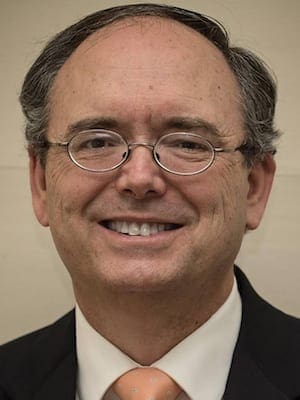I don’t participate in bicycle racing. I don’t even own a bicycle, although if gas prices continue the way they are going, that may change. I don’t keep up with competitive cycling and I don’t watch the Tour de France on television.
But you’d have to be stranded on a desert island not to know about the controversy surrounding this year’s winner, Floyd Landis. His comeback win was a huge story. Then the word came that he had tested positive for high levels of testosterone and that the samples taken from him contained synthetic testosterone, a banned substance. He has been dismissed from his cycling team for violating its internal code of conduct. The director of the Tour said that Landis is no longer considered the champion, although the official stripping of the title will apparently have to await the outcome of an appeals process.
I am in no position to judge whether Landis is innocent or guilty. Maybe he cheated; maybe he didn’t. Most athletes don’t but some do. A couple of weeks ago, four minor league baseball players were banned for 50 games after they tested positive for performance-enhancing drugs. A major track-and-field athlete recently tested positive for a banned substance. It’s a problem across the sports world.
The temptation to cheat, which I would define as cutting corners in an inappropriate or unethical manner in order to gain an unfair advantage, is present in all areas of life. The temptation is fueled by competition. We are always looking for a way to survive, to succeed, and to win. Students compete with other students. Workers compete with other workers. Businesses compete with other businesses.
Churches compete with other churches, too. They shouldn’t, but they do. When a church sees itself as being in competition with other churches and when a pastor sees himself or herself as being in competition with other pastors, what unfortunately comes to matter the most is the same thing that matters the most to those athletes who use banned substances: winning.
We start evaluating our ministries by the status of the bottom lines. How big is the church membership? How many folks worship with us on Sunday? How big is the budget? If we’re not careful, having a good bottom line becomes so important to us that how we get there stops mattering to us. We’ll do whatever works. We’ll do whatever it takes.
What constitutes cheating in the church? We cheat when we wed our message to our culture. We cheat when we emphasize codes of conduct over the amazing grace of God. We cheat when we place anything else at the center of our faith and our message other than Jesus Christ. We cheat when we fail to take the entire biblical witness seriously. We cheat when we foster a pastor-centered personality cult. We cheat when we reduce Christian discipleship to local church loyalty.
Cultural captivity, moralizing, majoring on minors, shallow and uninformed bibliolatry, pastor worship, the replacing of Christianity with “churchianity”–these should be among the church’s “banned substances,” no matter how well they function as “performance enhancers.”
This is not to say that the only way to have good numerical results in the church is to cheat. A great many churches have a lot of folks and a lot of money and they are carrying out their ministries in ways that are as true to the spirit of Christ as they can make them. All churches should do the absolute best they can to do the best ministry they can and to reach the most people they can for Christ.
The test, I believe, is how central Jesus Christ is to all that we do and say. The challenge is to examine his life and his words and to do all that we can to minister like he did. If we do that, our ministry will be characterized by love for God and people that shows itself in service and sacrifice. We will serve and sacrifice for the sake of Christ and for the sake of the world. The increase will then be legitimate because it will be defined by God and given by God.
And we won’t be cheaters.
Michael L. Ruffin is pastor of The Hill Baptist Church in Augusta, Ga.

